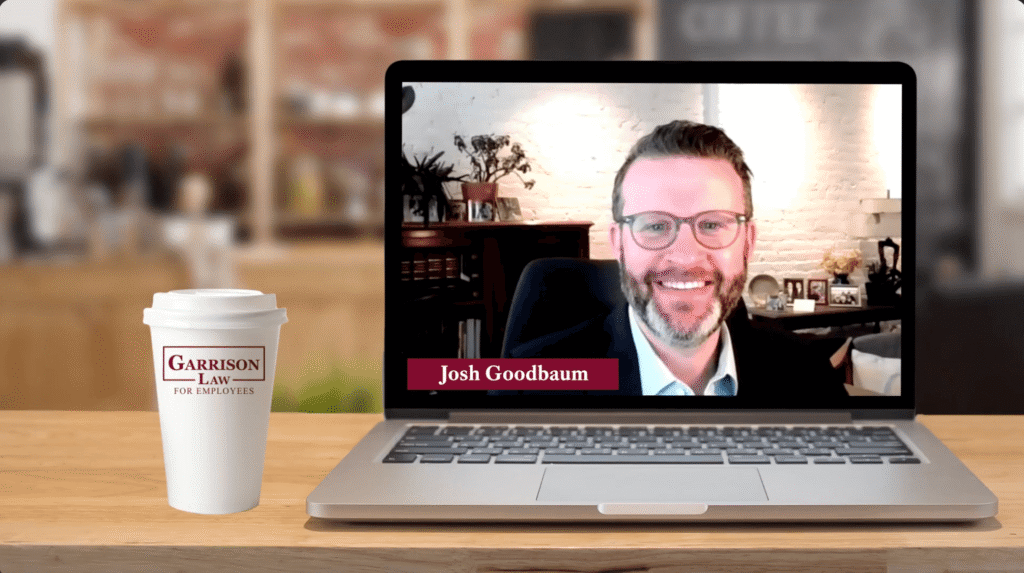Josh Goodbaum: Hi, Amanda.
Amanda DeMatteis: Hi, Josh. What are we going to talk about today?
Goodbaum: I thought we would continue our series about legal lingo – or as lawyers often call it, “legalese.” So today’s word of the day, for our non-lawyer clients and viewers, is “deposition.”
What’s a deposition? What do non-lawyers need to know about it?
DeMatteis: A deposition, Josh, is oral testimony that’s given under oath. It is a tool that lawyers use to find out more about a particular dispute. It typically follows an exchange of information through things called interrogatories or requests for production of documents. You can learn more about those in other videos.
In an employment law lawsuit, a deposition gives lawyers – both your lawyer and lawyers for your employer – the opportunity to sit down with potential witnesses and really dig into the facts. Maybe put documents in front of them and say, “What does this mean?” and “What did you mean by saying this?” or “What did you mean by saying that?” It’s a way to gain more information about this particular case.
Depositions take place in conference rooms. The only people that are allowed to be there are the witness (called the “deponent”), the parties (that’s you and a representative from your employer), the lawyers for either side, and a court reporter who is taking down every single thing that the people in that room are saying – every question that’s asked and every answer that’s provided. And the reason for that is that everything the deponent says in a deposition is testimony – just as if it was being given in front of a judge or in front of a jury.
Lawyers have a lot of latitude in terms of what they can ask a deponent in a deposition setting. In federal court, for instance, you can question a witness for seven hours. People say all the time, “What could you possibly ask me about an employment dispute for seven hours?” Well, a lawyer may want to learn a little bit about this particular witness – where are they from, what’s their background, what type of education have they had, where have they worked before? They want to learn about who this person is and how it may fit into the theory of their case.
If you are a plaintiff in an employment case, don’t be concerned about your deposition. You are going to sit down with your lawyer, and you are going to prepare significantly before you go into this deposition setting. So, you’re going to have an understanding of exactly what you can expect, what the purview of information that you might be talking about is, and really be ready to go into this day.
Goodbaum: Thanks for demystifying the deposition, Amanda. Thank you all for watching. We’ll see you next time.

